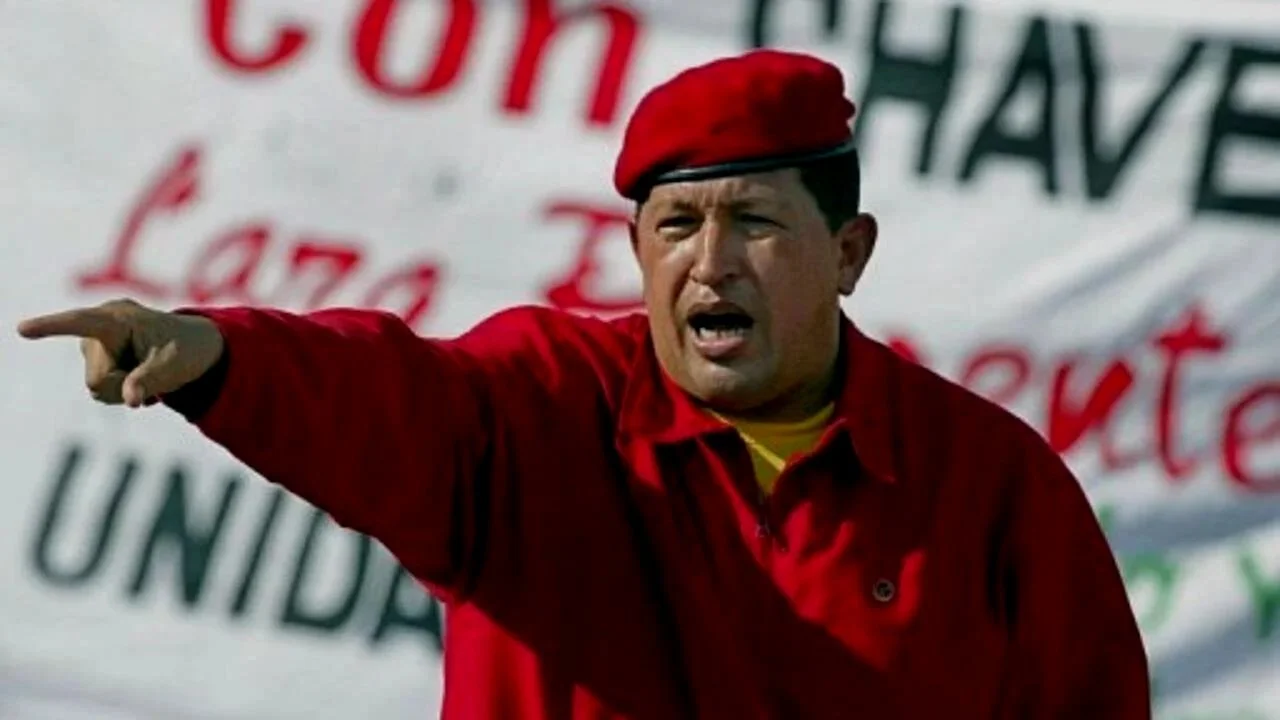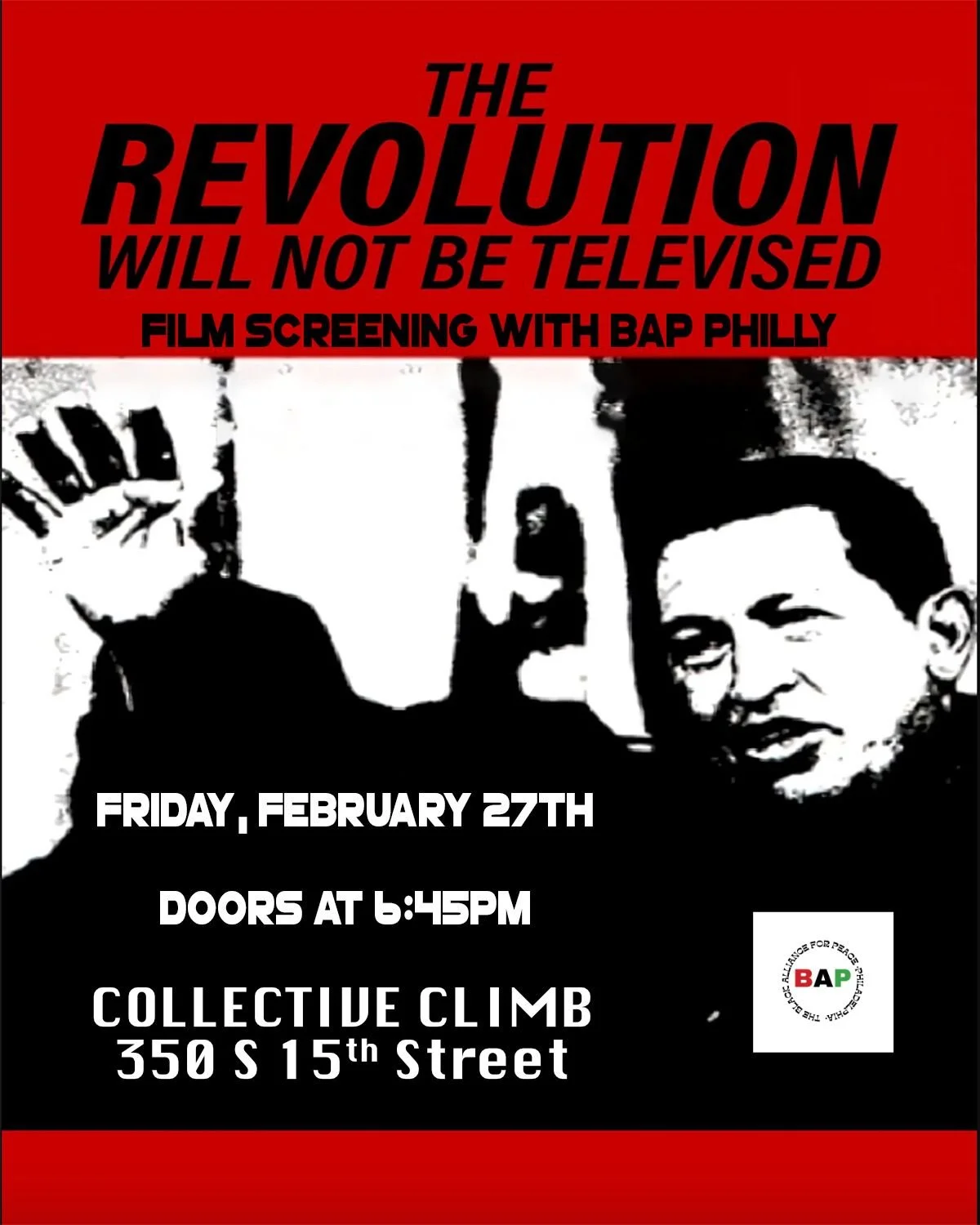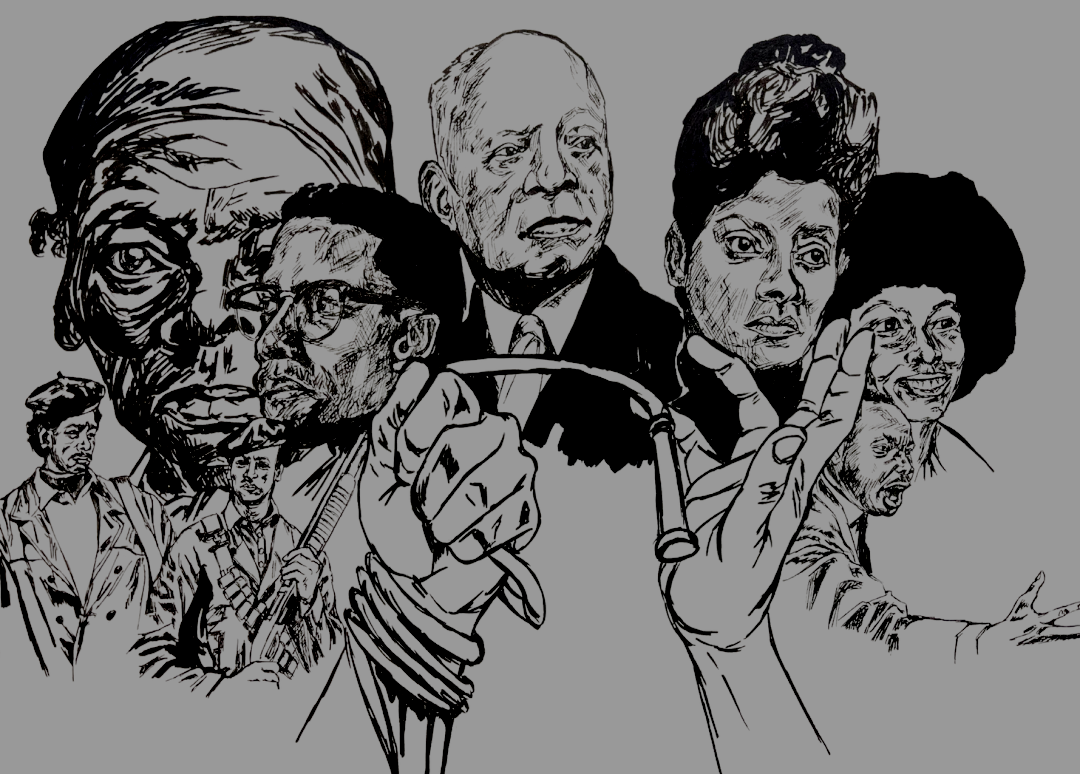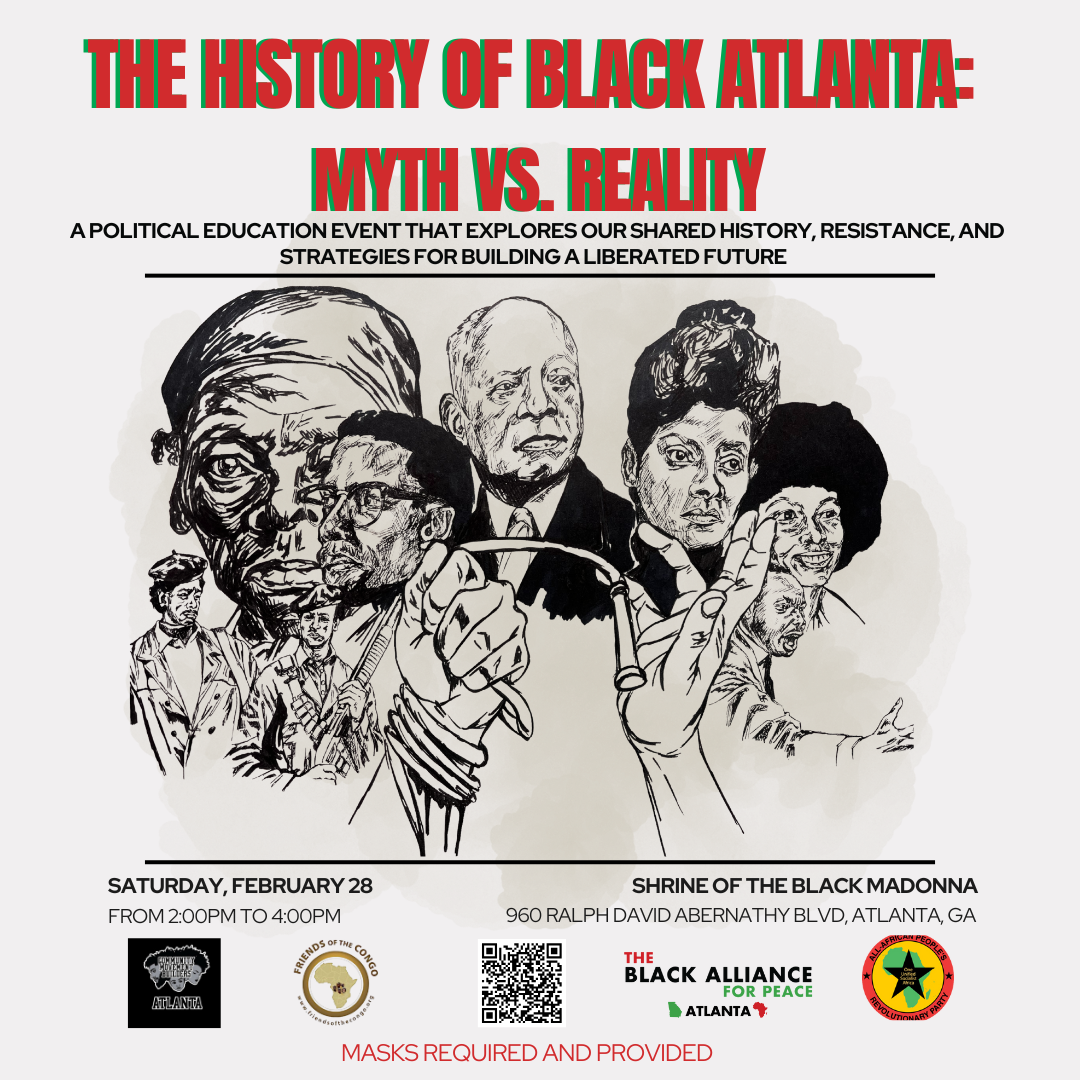Join BAP Philadelphia at Collective Climb for a Friday night screening of "The Revolution Will Not Be Televised", the 2003 documentary by Kim Bartley and Donnacha Ó Briain covering the coup attempt of Hugo Chavez in 2002.
The film's focus on the use of media in local Venezuela politics sets the ground for the aggressive media strategy used against Chavez by his opponents later on. Join us in connecting the events of 2002 to the current occupation of Venezuela by the United States, and the use of media narratives for geopolitical power in both time periods.
Date: February 27th, 2026
Time: 6:45 PM EST
Location: Collective Climb; 350 S. 15th Street, Philadelphia, PA





